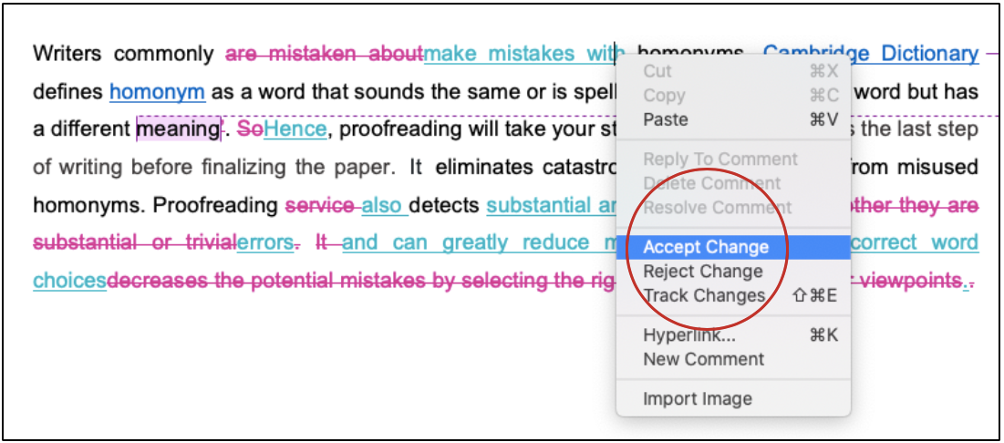For a high-quality research paper, dissertation, or thesis, a helpful research question plays a critical role in designing it. It precisely suggests what you wish to study, presenting your research's apparent emphasis and objective.

For a high-quality research paper, dissertation, or thesis, a helpful research question plays a critical role in designing it. It precisely suggests what you wish to study, presenting your research's apparent emphasis and objective. Therefore, the research question concentrates on a sole issue, can be examined with primary and secondary sources, and addresses specific questions within the study's boundaries. Moreover, it must be detailed enough to handle the studied issue, sufficiently complicated to develop the response within the scope of the thesis or dissertation, and pertinent to what is learned with applicability to the broader society or community. Remember that a single research question must direct your reading and thinking. In the due process, what will be developed is your thesis statement, forming the backbone of your study. Suppose you have a sizeable research project, such as a thesis or dissertation. In that case, you might need to confront many research questions, each requiring connection and focus around what you research, namely the research problem.
This process involves the following steps:
a) Selecting a comprehensive theme
b) Conducting initial reading allowing you to discover what is trending in current research
c) Contracting a specific forte that you wish to concentrate on
d) Specifying a down-to-earth or hypothetical research problem that you will state.
When a specified problem is before you, all you need is to devise one or more questions. Precisely consider what you wish to discern and how it will help resolve the problem.
How you formulate your question relates to your research objectives. Research objectives will involve defining and discovering, elucidating and testing, assessing and acting. Defining and discovering requires that you pose questions such as what are the traits of the independent variable (treatment), how has it developed over time, how many levels does it have, how the dependent variable experiences the independent variable, and how the dependent variable has endured the independent variable.
The relationship between the dependent and independent variables, the impact of the independent variable on the dependent variable, and the cause of the dependent variable are covered in elucidating and testing. Finally, assessing and acting includes:
Presenting pros and cons of the dependent variable
Determining its effectiveness
Defining how it is achieved
Posing strategies to enhance it.
A helpful research question is crucial because your entire project builds on it. Therefore, you must refine it. First, your research question must be engrossed and investigable. Let us elaborate on what we mean by engrossed and investigable—being engrossed and investigable covers concentrating on a sole issue. Your primary question must relate to your research problem to ensure that your work is focused. Suppose you have many questions to address. In that case, they must all relate to your primary objective.
Moreover, using primary or secondary data help you find an answer thanks to quantitative and qualitative data from scholarly resources. If you cannot access such data, you may have to revise your research question accordingly. One also must avoid subjectivity. Hence, we suggest you avoid subjective words, including the best, good, bad, or worse. If you evaluate traits, you must have measurable specifications. The research question must also be practical and unique. You must ensure that you have allocated enough time and resources to conduct the study. If accessing data seems cumbersome, constricting the research question may help. You must employ unique and well-defined concepts. Remember that securing the definability of the terms used will improve the impact of your research. Otherwise, you may confuse your readers with vague language diminishing the implications of your study. Exceedingly relevant is that the research is beyond instructing and merely covers informing. Thus, even if you have a practical issue, ensure that it enhances understanding and poses prospects instead of presenting an already full-fletched solution.
On top of that, your research question must be complicated and discussable. Suppose all your research question addresses simple yes or no questions. In that case, you will have a limited scope, minimally contributing to the extant literature. Here is a test for you. It is not complicated enough if you can find the answer to your research question by googling it. More importantly, your research question must provide scope for discussion and deliberation. It is specifically relevant in a research article or thesis where the address to the research questions forms the backbone of an argumentative thesis statement. Finally, your research question must be pertinent and original. It must fill the gap in the existing literature.
Furthermore, it must add to social or academic debate. Do not consider that you have to discover something from scratch. However, how eloquently you investigate your topic and focus on an aspect needing further elaboration is what is asked of you.
Best Edit & Proof expert editors and proofreaders focus on offering papers with proper tone, content, and style of academic writing, and also provide an upscale editing and proofreading service for you. If you consider our pieces of advice, you will witness a notable increase in the chance for your research manuscript to be accepted by the publishers. We work together as an academic writing style guide by bestowing subject-area editing and proofreading around several categorized writing styles. With the group of our expert editors, you will always find us all set to help you identify the tone and style that your manuscript needs to get a nod from the publishers.

You can also avail of our assistance if you are looking for editors who can format your manuscript, or just check on the particular styles for the formatting task as per the guidelines provided to you, e.g., APA, MLA, or Chicago/Turabian styles. Best Edit & Proof editors and proofreaders provide all sorts of academic writing help, including editing and proofreading services, using our user-friendly website, and a streamlined ordering process.
Visit our order page if you want our subject-area editors or language experts to work on your manuscript to improve its tone and style and give it a perfect academic tone and style through proper editing and proofreading. The process of submitting a paper is very easy and quick. Click here to find out how it works.
Our pricing is based on the type of service you avail of here, be it editing or proofreading. We charge on the basis of the word count of your manuscript that you submit for editing and proofreading and the turnaround time it takes to get it done. If you want to get an instant price quote for your project, copy and paste your document or enter your word count into our pricing calculator.
Contact us to get support with academic editing and proofreading. We have a 24/7 active live chat mode to offer you direct support along with qualified editors to refine and furbish your manuscript.
Follow us on Twitter, LinkedIn, Facebook, Instagram, and Medium.
For more posts, click here.
This article explains how to develop research questions for a dissertation or thesis. To give you an opportunity to practice proofreading, we have left a few spelling, punctuation, or grammatical errors in the text. See if you can spot them! If you spot the errors correctly, you will be entitled to a 10% discount.
How to Determine Variability in a Dataset
14.10.2023
Population vs Sample | Sampling Methods for a Dissertation
14.01.2023
7 Issues to Avoid That may Dent the Quality of Thesis Writing
18.12.2022
How to Ensure the Quality of Academic Writing in a Thesis and Dissertation?
04.12.2022
How to Define Population and Sample in a Dissertation?
03.12.2022
How can You Establish Experimental Design in Your Dissertation?
12.11.2022
How Can You Decide on Tense Usage in Your Dissertation?
04.11.2022
How Can You Write an Abstract for Your Dissertation?
30.10.2022
How to Build Research Methods for Your Dissertation
14.10.2022
How to Build a Strong Hypothesis for Your Dissertation
13.10.2022

While composing a thesis or dissertation, a student must experience some predicted traps. Falling into these traps can affect one’s academic career. However, handling potential blunders and pitfalls wisely, while developing a thesis, can lead you to success. The process of writing may be frustrating but learning about the probable pitfalls may ease your stress. Here, we bring you the list of the most common mistakes we have noticed as a professional proofreading and editing service provider.
Continue Reading
The first step includes choosing a subject for your thesis, dissertation, or research project and ensuring the process becomes rewarding and smooth. One should consider many issues before deciding on a topic.
Continue Reading
An abstract usually summarizes a lengthier work (including a dissertation, thesis, research paper, or review). The abstract should explicitly state the objectives and results of your research. Thus, readers can learn what your research addresses.
Continue Reading